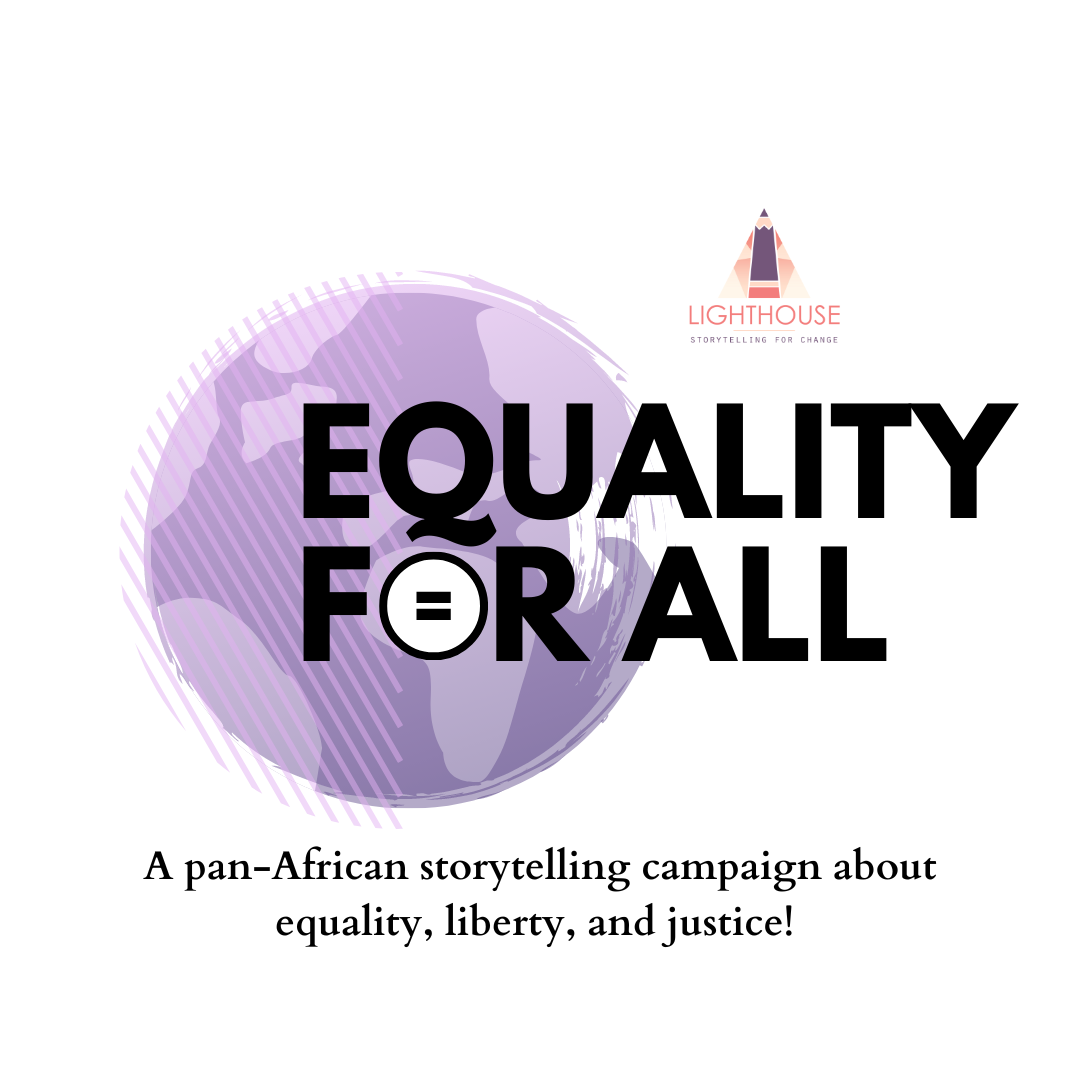Equality for All

Listen. Across markets, back alleys, community halls and living rooms from Nairobi to Lagos, people are telling themselves who they are. Equality for All was our invitation to listen more carefully. It began as a question: what happens when the people most affected by unfair laws, slow courts, unequal economies and quiet everyday exclusions are given space to tell their stories in their own language and in their own voices? The campaign grew into a living archive of testimony, witness and imagination. It is a map of justice made of sound, text, film and the rhythms of ordinary life. The work we published was never meant to lecture. It was meant to reframe. It was meant to turn data into faces, policy into pulse, and statistics into songs.
Stories do the work that reports cannot. They translate law into lives, policy into possibility. If justice is to be more than a word, we must let the people most intimate with its absence define what it looks like.
Africa is home to roughly one and a half billion people, a fact that makes the stakes of justice and equality continental in scale (Our World in Data). Seventy percent of Sub-Saharan Africa’s population is under the age of thirty, representing a powerful demographic force. Young voices are not only the future; they are the majority present (United Nations). Internet access across the continent is expanding rapidly but unevenly. While large national markets now count tens of millions of users, many rural areas remain chronically offline. Nonetheless, the use of social platforms and audio streaming continues to rise each year (DataReportal – Global Digital Insights). Most of the world’s extreme poverty is concentrated in Sub-Saharan Africa, and this economic pressure shapes how people experience justice, mobility, and voice (World Bank). Public perception also plays a critical role. Recent Afrobarometer data shows that a majority of respondents believe people are often or always treated unequally under the law, and many perceive discrimination based on economic status. These perceptions shape civic trust and the appetite for change.
Today, the impact of ‘Equality for All’ continues to grow, with stories being shared in classrooms, youth forums, and community spaces, sparking deeper conversations and inspiring collective action.
Stories of Change: Journeys Toward Justice and Equality
Listen.
Antonia Patricia Herrera Veas Lampa, Chile Listen. Do you know climate activists? Well, my daughter is one of them. She's so obsessed that she works with people from all around the globe to "Save Our Planet." God, they won't change the world! Besides, it's not like...
A beautiful picture that once was
Nandana Mohandas India A beautiful picture that once was The pin that anchored my Hijab shifted, as I fidgeted with the lanyard. In a college that represented a privileged and dominating demographic, melanin was scarce. “Zahabiya” read my ID card. My skin stood...
Ubuntu
The tale of "Ubuntu," a traditional African philosophy that stresses the interconnectedness of all people and the value of community and compassion, is one example of a diverse story from South Africa. The word Ubuntu, which means "humanity toward others" in...
Quilombos
The "Quilombos" narrative is an instance of a multicultural Brazilian tale. In the 16th century, slaves who had escaped the Portuguese colonists and created their own free communities called themselves Quilombos. People with various African ancestries, who...
Boduberu
Maldives is the setting for the legend of "Boduberu," a regional style of music and performance. The story goes that sailors who crossed the Indian Ocean carried Boduberu to the Maldives from his native Africa. The Maldivian term "Boduberu" directly translates...
Ramakien
The mythology of the "Ramakien," which is Thailand's adaptation of the Indian epic, the Ramayana, is one of the country's most well-known cultural tales. Prince Rama and his wife Sita are depicted in the Ramakien as having been banished to the jungle by Rama's...











